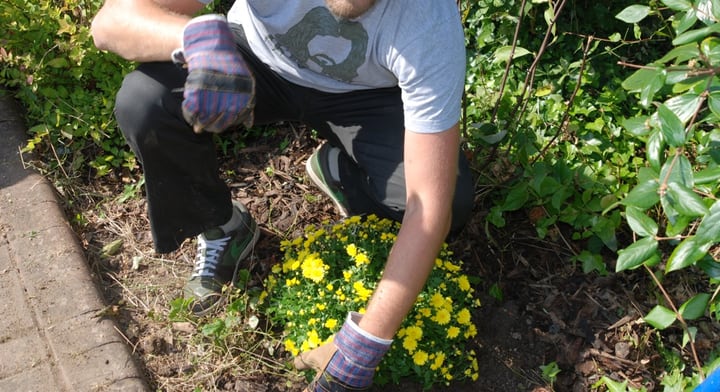
There are many benefits of kids gardening. The benefits of gardening for children go beyond providing exercise. They can also learn more about the life cycle. Because it involves digging, weeding, and so on, gardening can often be called "heavy" work. Studies have shown that children who are involved in gardening are more calm and attentive. This is an excellent opportunity to introduce kids to the joy of gardening. Here are some ways to get your children involved in gardening.
Start small. You can either start small by cultivating small spaces or planting seeds in containers. Children are naturally attracted to color and smell so you can choose to grow plants that bloom quickly. Children also learn about wildlife while cultivating a garden, so be sure to choose plants that are native to your area. In order to attract wildlife to your garden, you can use lures. Kids are eager to learn about nature, so be sure to model the healthy habits you have.

Children are extremely tactile. You should choose sensory plants your child will enjoy using. Make planting fun! Children love different textures. You will delight your child to see that there are many textures out there! The best way to help your child get used to new tastes is to introduce them new smells and flavors. This is a great way to help your child take responsibility for their health. You'll see them grow up as amazing people and plants that have lots of nutrients.
They can also help plant the seeds and teach how to grow them. You can also give them seeds to make their favorite toppings and help you with the backyard chores. For the more adventurous, you can even get them to grow their own tomatoes and peppers. This will allow your child to become more interested in growing and maintaining their own plants. These activities will be fun and provide learning opportunities, so your child will love gardening.
After watering and preparing the soil, it is time to plant the seeds. It is important to water healthy soil. However, it is best to water only after the plants have sprouted. Overwatering can be just as harmful as underwatering. Be sure to follow the instructions when planting certain crops. Children can also build pizza gardens using crumpled newspapers and mulch. After the seeds have sprouted, children can put seeds in rows and label each spot with the name of the vegetable they are growing.

Children can also create self-sustaining gardens, called terrariums, indoors. You can make your own terrariums and watch the natural cycle of life. It's a lot of fun and teaches children important lessons about the cycle. If you're unsure of how to get started, try creating a terrarium first. You'll be surprised at how quickly and easily kids will pick up gardening and love it.
FAQ
Can I grow fruit trees inside pots?
Yes! If space is limited, you can grow fruit trees in pots. To prevent tree rot, make sure the pot has drainage holes. You should also ensure that the pot is deep sufficient to support the root ball. This will stop the tree becoming stressed.
What month is the best time to start a garden?
It is best to plant vegetables between April and June. This is when the soil gets warmest, and plants tend to grow quickly. If you live somewhere cold, it is best to wait until July or august.
How can I tell what kind of soil is mine?
It is easy to tell the difference by the color of your dirt. The soil color will tell you if it contains more organic matter than the lighter ones. Another option is to test the soil. These tests determine the amount of nutrients in the soil.
How often should I water indoor plants?
Watering indoor plants should be done every two days. You can maintain humidity in the house by watering. Humidity can be vital for plants that are healthy.
How many hours of daylight does a plant really need?
It depends on which plant it is. Some plants need 12 hours of direct sun per day. Others prefer 8 hours in indirect sunlight. The majority of vegetables require 10 hours of direct sunshine per 24 hour period.
Statistics
- According to a survey from the National Gardening Association, upward of 18 million novice gardeners have picked up a shovel since 2020. (wsj.com)
- It will likely be ready if a seedling has between 3 and 4 true leaves. (gilmour.com)
- 80% of residents spent a lifetime as large-scale farmers (or working on farms) using many chemicals believed to be cancerous today. (acountrygirlslife.com)
- Today, 80 percent of all corn grown in North America is from GMO seed that is planted and sprayed with Roundup. - parkseed.com
External Links
How To
How can I keep my vegetable garden weed-free?
Growing healthy vegetables is difficult because of weeds. They can compete for water and nutrients, sunlight, space, and other resources. These tips will help you prevent them taking over your garden.
-
Take all flowers and plant material.
-
Remove any plant debris around the base of the plant
-
Mulch
-
Water regularly
-
Rotate crops
-
Do not let the grass get too long
-
Keep soil moist
-
Plant early
-
Harvest often
-
Add compost
-
Avoid chemical pesticides
-
Produce organic vegetables
-
Get heirloom seeds
-
Start small
-
Learn about companion planting
-
Be patient
-
Enjoy gardening!